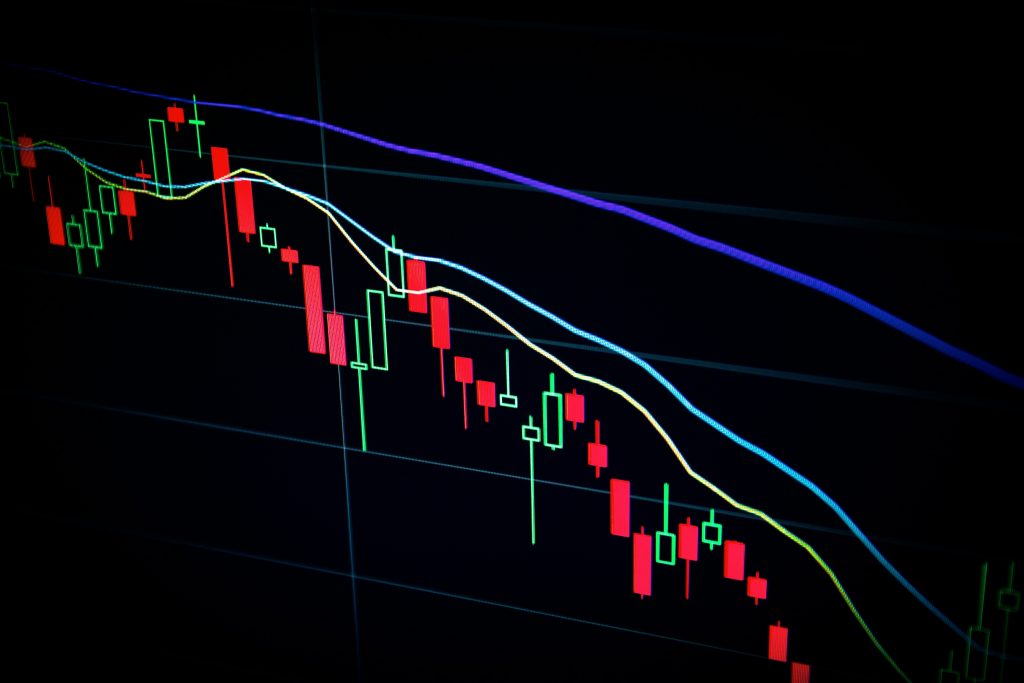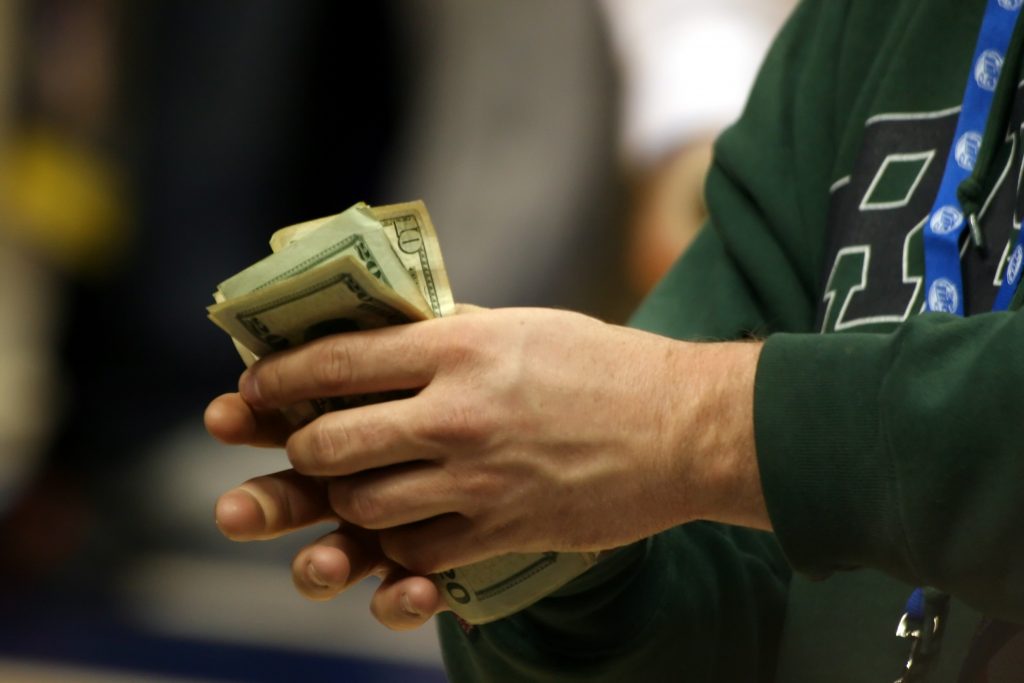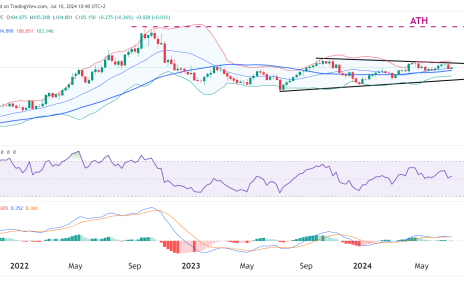For weeks, there has been speculation that Russia is planning an invasion of Ukraine. However, some security analysts doubt that the Russian leadership is preparing for war. Nevertheless, Ukraine conflict would have ramifications across various economies and financial markets, including goods pricing, cryptocurrency, and stock markets, keeping financial market participants on edge. As a result, the price of gold has skyrocketed owing to investors flocking to it as a safe haven asset. In contrast, stock prices have dropped due to fears of higher interest rates and overall tighter monetary policy from the Federal Reserve, as predicted by stock market gurus and financial experts.
Impact on the Russian economy

Russia is highly likely to be kicked out of the SWIFT international payment system. Because SWIFT is the most effective international system for sharing transaction information, this would effectively remove Russian financial institutions from the global financial system. In effect, the European economy may potentially be affected negatively if this happens.
According to EU’s Commission President Ursula von der Leyen, other possible economic consequences include halting the contentious Nord Stream 2 gas pipeline. In addition, the EU is Russia’s most important trading partner, accounting for over 40% of all traded goods and its largest foreign investor. “These figures show that we have considerable power and that further action against Ukraine would be exceedingly costly for Russia,” she told CNN.
The security of Ukraine has always been a necessity for Nord Stream 2. A Russian strike on Ukraine could bring Nord Stream 2 to a halt. But the issue is whether Russia has already factored in the termination of the gas pipeline.
Impact on Oil Prices

Investors are more concerned about geopolitical dangers than favorable variables like increased oil, gas, and metal prices. If the market is frightened of conflict, a rise in a particular commodity or stock price won’t help.
The decline in gas supplies from Russia to Europe will become a problem, although it will not be severe due to the seasonal natural gas consumption pattern. Oil price is surging toward $100 per barrel, and replacing it will be prohibitively expensive if Russia, the world’s largest supplier, reduces delivery by choice or by force. Oil shortages threaten to drive up costs across the board, and inflation in the EU is already at multi-year highs.
This quarter, Russia and Ukraine heighten the probability of a significant comeback in oil prices. However, this fact comes on top of already-high inflation, which touched a multi-decade high last quarter, and a global economy that is being hammered by another wave of the COVID-19 epidemic adds to the recovery’s short-term instability.
The oil market may become turbulent due to the conflict with Russia. If Russia’s infrastructure is harmed or shuts down, increased energy costs may result. In addition, port disruptions in the Black and Baltic Seas might cause shipping issues, perhaps leading to food inflation as grains and other commodities stay trapped at sea.
Russia is the world’s second-largest natural gas producer, accounting for 17% of global natural gas production in 2020. Furthermore, Russia exports 37 percent of its national output, the majority of which is destined for Europe.
Impact on European Union
Russia is the EU’s fifth-largest commercial partner and primary energy provider, whereas the United States is barely in the top 30. In terms of investment, there is a similar chasm.
With growing inflation and consumer pressure from rising energy prices, EU policymakers are wary of imposing penalties. They want the consequences of a Ukrainian invasion to be worse for Russia than for Europe. The primary concern is that the conflict would cut off natural gas supplies in the dead of winter when they are most needed. The US is a net energy exporter, while the EU relies on imports, and Russia is the world’s largest oil and natural gas supplier.
Impact on Stock market prices
What if the saber-rattling escalated into a full-fledged war? The stock markets have already responded sharply to the news of the Russia-Ukraine conflict, with prices plummeting. On the Russian stock market, there are tremendous responses. Investors in the region are concerned about potential penalties if Russia allows the crisis to escalate. The Russian leading index RTS, which includes firms like the airline Aeroflot and the gas behemoth Gazprom, fell by more than 4.5 percent.
Concerns over a Russian invasion of Ukraine also have clouded stock market activity in the United States. On February 17, the Dow Jones Industrial Average fell 1.8 percent, the S&P 500 fell 2.1 percent. Moreover, the tech-heavy Nasdaq Composite fell 2.9 percent, owing to the US administration’s classification of Russia’s announcement of a partial withdrawal of Russian forces from the Ukraine border area as false information and a warning against naivety in dealing with Russia.
Undoubtedly, the effect of the Russia-Ukraine conflict has investors in a frenzy. However, Warren Buffett, a stock trading master, advises investors to think long term: turbulence is only transitory, the “bullish trend” will return, and reward patient investors.
Past geopolitical crises have had a significant impact on the stock. For example, the 2007/2008 financial crisis, which began as a domestic issue in the United States owing to sub-prime mortgages, quickly expanded and had economic consequences worldwide. However, experience has proven that it is unlikely to influence the fundamentals no matter how extreme this escalation is. Moreover, since they have previously weathered increasing global tensions, investors will not be dumping equities as aggressively as they did in the past.
From the past, we’ve learned that a trader must stick to the trading method and avoid distracting news. Since 9/11 and the Great Financial Crisis, the stock market has recovered, possibly the worst geopolitical and economic shock in history. Against this backdrop, investors generally may be more cautious regarding their investment decisions and have a much bigger perspective regarding the market’s outlook.
Impact on Stock Market
Global stock markets often weaken as conflicts approach, strengthen long before hostilities conclude, and treat human tragedy with great apathy, as per the consistent historical pattern seen by investors. On the contrary, while a conflict between Russia and Ukraine might momentarily disrupt markets, investors seldom have long-term ramifications.
The most significant impact on investment will most likely be unfavorable market sentiment against Russian equities, bonds, and currency. Short-term stock market volatility is also anticipated to rise along with oil prices. However, given the looming political danger, investors should not overlook the long-term possibilities that overseas markets may provide. Short-term threats will be mitigated by diversified and skillful management while long-term rewards are pursued. In the face of global turmoil, diversification may provide investors with some peace of mind.
In recent years, it has been advised not to overreact to political and geopolitical shocks for two reasons:
- The first is the notion that, after the initial shock, there would be no considerable increase.
- Second, central banks have taken steps to mitigate the danger of extreme financial market volatility.
The Possible Risk of High Inflation Rates

According to the IMF, inflation in developed nations will be average 3.9 percent in 2022, up 1.6 percentage points (pp) from October’s prediction; in developing countries, inflation will be 5.9 percent in 2022, up to one percentage point (pp) from October’s forecast.
The Russia-Ukraine conflict might drive up the cost of living in the United States. Oil prices have risen well beyond $90 per barrel in recent weeks as the threat of a Russian invasion has grown. According to a report by RSM shared to CNN, if the price of oil per barrel reaches $110, inflation in the United States could exceed 10% on a year-to-year basis. It would be the highest inflation increment since October 1981.
When inflation is high and predictable, people are scared to save in the national currency for an extended period because they know their savings will be devalued by inflation.
Potential Trading Approach in the Markets
Traders are enraged by geopolitical events such as Russia’s actions against Ukraine. Traders then face the danger of becoming frustrated, if not terrified, and making rash judgments.
Traders frequently experience fear and greed during periods of significant stock market instability. On the one hand, they desire to sell stocks or other securities as soon as possible to limit their losses and avoid losing even more money. But, on the other hand, the idea of taking advantage of the substantially reduced costs to find alleged deals and profit handsomely in a short period is appealing.
Consequently, it is critical to take hands off stock portfolios in the short term. On the other hand, the maxim is different in the long run. Traders could think about if any developments in the world require them to adjust their portfolios. The present confrontation between Russia and Ukraine exemplifies this.
Oil, for example, is likely to grow considerably more costly in the future. So it’s also crucial to locate energy sources in other areas. Investors should assess where the beneficiaries will be in the long run and allocate more of their capital there. In the future, investments in the US and Chinese markets may be more appealing.
The relative success of the forex markets has, understandably, been a consequence of geographical closeness and reliance on energy. As a result, the Russian ruble could face significant pressure against the dollar and euro on the foreign currency market. USD spreads were less affected by the Ukraine conflict news but steadily expanded recently, trailing EUR spreads.
In times of crisis, gold is seen as a safe haven. As a result, traders believe it is just a matter of time until gold reaches new highs. However, those that trade gold should keep in mind that the price of gold is currently relatively high, so the upward potential is limited.
In this volatile market, traders could look forward to index funds or exchange-traded funds (ETFs) to keep the costs low. According to studies, investment costs have a significant influence on the outcome. In times of crisis, everybody who invests a certain monthly amount in ETFs or shares through a savings plan gets more shares for their money because prices have fallen dramatically. During upturns, the trader purchases at a higher price. As a result, the trader reaches long-term average pricing and does not have to squander to figure out the best moment to buy stocks.
To Summarize
The crisis in Ukraine might have far-reaching economic and financial ramifications. For example, gold’s price has soared due to investors flocking it as a safe-haven asset. Furthermore, due to the seasonal structure of natural gas use, reducing gas supply from Russia to Europe will be a concern.
Fears of a Russian invasion of Ukraine have also hampered stock market activity in the United States. Furthermore, global short-term stock market volatility is projected to rise. Amid geopolitical turmoil, diversification may provide investors with some peace of mind. Long-term beneficiaries should be identified, and more of an investor’s capital should be deployed there.
If you are an investor, do you prefer to trade or invest in this chaotic situation?


